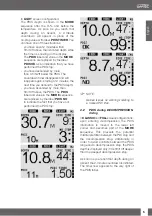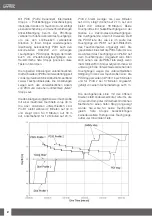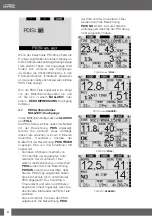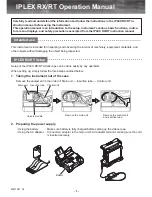
3
2.
How does PDIS work?
The mathematical decompression model in
Galileo, called ZH-L8 ADT MB PMG, tracks
your decompression status by dividing
your body into 8 so-called compartments
and mathematically following the uptake
and release of nitrogen in each with the
appropriate laws of physics. The various
compartments simulate parts of your body
such as central nervous system, muscles,
bones, skin and so on.
The depth of the PDI stop is calculated as
that at which the leading compartment for
the decompression calculation switches
from ongassing to offgassing, and the
diver is advised to perform a 2-minute
stop
above
the displayed depth (this is the
opposite of a decompression stop, where
you are asked to remain just
beneath
the
displayed depth). During this intermediate
stop, the body is not taking up any more
nitrogen in the leading compartment, but
rather releasing nitrogen (though under
a very small pressure gradient). This,
combined with the relatively high ambient
pressure, inhibits bubble growth.
It should be noted that the two fastest
compartments, with 5 and 10
minutes
half times respectively, are not considered
for the determination of the PDI stop
depth. This is due to the fact that these
compartments are only “leading” for very
short dives, for which an intermediate stop
is not required at all.
NOTE:
The PDI stop is not a mandatory
stop
and it is
NOT
a substitute for the
3-5 minute safety stop at 5m/15ft.
!
WARNING
Even when performing a PDI stop, you still
MUST perform a safety stop at 5m/15ft for 3 to
5 minutes. Performing a 3 to 5 minute stop at
5m/15ft at the end of any dive is still the best
thing you can do for yourself!
3.
Special considerations
when diving with more
than one gas mixture
(PMG)
Switching to a higher oxygen concentration
mix during the dive infl uences the PDI stop.
This needs to be accounted for, in line with
the predictive nature of multigas handling in
ZH-L8 ADT MB PMG.
When diving with more than one gas
mixture, Galileo displays the PDIS depth
according to the following rules:
- if the PDI stop calculated for the bottom
mix (gas 1) is deeper than the switch
depth, than this calculated value is
displayed;
- if the PDI stop calculated for gas 1
is shallower than the switch depth to
the next gas (gas 2 or gas d), then the
displayed PDI stop is a function of the
next gas.
In case of a missed gas switch, Galileo
reverts to the PDI stop for the actively
breathed mix.
4.
Diving with PDIS
NOTE:
To use the PDIS feature, you must set
PDIS
to
ON
in the
PDIS
menu under
DIVE SETTINGS
. The default setting
is
OFF
.
English
Summary of Contents for GALILEO
Page 1: ......
Page 2: ......
Page 9: ...English ...
Page 10: ......
Page 11: ......
Page 12: ......
Page 19: ...Deutsch ...
Page 20: ......
Page 21: ......
Page 22: ......
Page 29: ...Español ...
Page 30: ......
Page 31: ......
Page 32: ......
Page 39: ...Français ...
Page 40: ......
Page 41: ......
Page 42: ......
Page 49: ...Italiano ...
Page 50: ......
Page 51: ......
Page 52: ......
Page 59: ...7 Nederlands ...
Page 60: ......





































